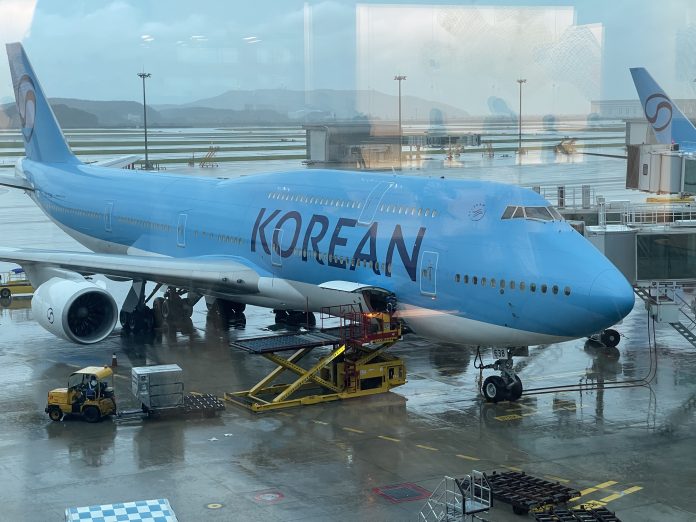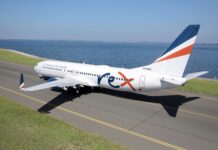 Korean Air reported a revenue of KRW 4.0085 trillion (US$2.8587 billion) for the third quarter of 2025, a decrease of KRW 232.3 billion year-on-year, primarily due to increased industry-wide capacity and competitive fare environment. Although fuel costs declined, overall operating expenses rose due to higher depreciation, maintenance, and operational costs. This led to an operating profit of KRW 376.3 billion KRW (US$268.4 million), a decrease of KRW 242.3 billion year-on-year.
Korean Air reported a revenue of KRW 4.0085 trillion (US$2.8587 billion) for the third quarter of 2025, a decrease of KRW 232.3 billion year-on-year, primarily due to increased industry-wide capacity and competitive fare environment. Although fuel costs declined, overall operating expenses rose due to higher depreciation, maintenance, and operational costs. This led to an operating profit of KRW 376.3 billion KRW (US$268.4 million), a decrease of KRW 242.3 billion year-on-year.
Third-quarter passenger business revenue totalled KRW 2.4211 trillion, a year-on-year decrease of KRW 196.2 billion. The decline is attributed to a shift in the timing of the Chuseok holiday (from September in 2024 to October in 2025), and temporary demand variables including stricter U.S. entry regulations.
Cargo business revenue totalled KRW 1.0667 trillion, a decrease of KRW 53.1 billion year-on-year. Despite a slight slowdown in the global air cargo market amid rising U.S. tariff risks, the airline maintained stable profitability by flexibly adjusting routes in response to tariff changes and demand fluctuations.
Looking ahead to the fourth quarter, Korean Air expects improved performance across its passenger network, driven by the long Chuseok holiday in October and the year-end peak travel season. The airline plans to maximise profitability through flexible capacity management, particularly to popular winter destinations.
The outlook for the fourth quarter cargo business remains mixed, with expectations for the year-end consumer season balanced against the potential for demand to soften due to ongoing trade tensions. Korean Air will focus on agile capacity management, capturing high-value cargo and securing e-commerce demand.
Air New Zealand expects 1H loss
Air New Zealand warned warned it would report a first-half loss after soft local economic conditions dented expectations for a revenue pickup in domestic and U.S.-bound bookings and engine leasing costs increased. The airline said it no longer expected the 2% to 3% revenue lift it had forecast in August, with current forward bookings showing little momentum. It forecast a loss before tax of NZ$30 million (US$17.20 million) to NZ$55 million for the six months ending on December 31.
Air New Zealand has been hurt by its small domestic market and competition from larger carriers like Qantas and Virgin Australia. The airline has also been hurt by delayed aircraft deliveries and grounded jets as a result of engine issues. Engine lease expenses are now projected to be about NZ$20 million higher after the airline recognised end-of-lease obligations on two short-term aircraft leases that were previously excluded from its outlook, according to a Reuters report.



















